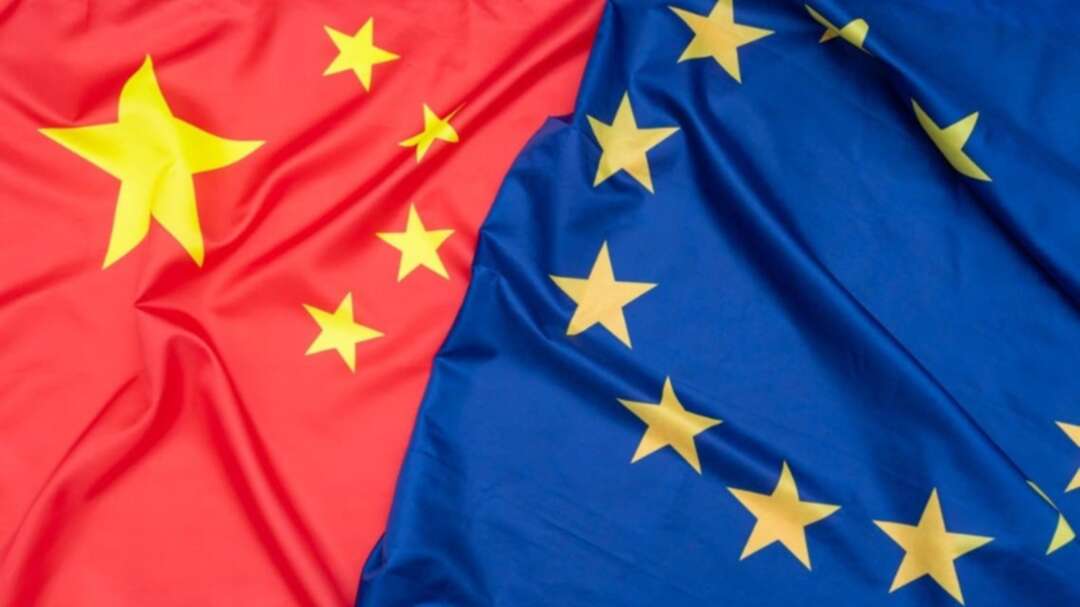-
EU says not seeking escalation with China, working on investment deal

The European Union is not seeking an escalation of tensions with China, and the situation with a stalled investment agreement is less dramatic than people think, the bloc’s ambassador in Beijing said on Friday.
In March the EU imposed its first significant sanctions against Chinese officials since 1989 over alleged human rights abuses in China’s Xinjiang region, amid a push by the United States to marshal its allies to counter Beijing’s increasingly assertive foreign policy.
Beijing, which denies the allegations, hit back by blacklisting some EU lawmakers and entities, and progress on a major investment accord stalled as relations became strained.
Speaking to reporters, EU Ambassador Nicolas Chapuis said the bloc won’t be stopped from saying what it wanted to.
“We are not seeking ... escalation, but nothing will deter the European Union from saying what it wants to say wherever it wants,” he said.
The bloc’s executive arm, the European Commission is pausing efforts to promote the comprehensive agreement on investment, or CAI, recognizing that it will struggle to secure backing from the EU parliament while lawmakers are under sanctions.
Chapuis said the situation with the deal was not quite that bleak.
“The situation is less dramatic than people seem to think. We are still working very closely with (China’s) Ministry of Commerce,” he added.
He said nothing is stopping China ratifying the deal before Europe, and that he looks forward to its early ratification by Beijing but “political space” needs to be created for the European Parliament to approve it.
“Today it’s too early to tell whether this political space will be available, large enough, sufficient enough.”
Speaking at an EU reception shortly after Chapuis’ comments, Chinese Vice Foreign Minister Qin Gang said the two sides should push for the early implementation of the investment agreement.
China hopes the EU can see China “objectively and rationally”, Qin said.
source: Reuters
Levant
You May Also Like
Popular Posts
Caricature
BENEFIT Sponsors BuildHer...
- April 23, 2025
BENEFIT, the Kingdom’s innovator and leading company in Fintech and electronic financial transactions service, has sponsored the BuildHer CityHack 2025 Hackathon, a two-day event spearheaded by the College of Engineering and Technology at the Royal University for Women (RUW).
Aimed at secondary school students, the event brought together a distinguished group of academic professionals and technology experts to mentor and inspire young participants.
More than 100 high school students from across the Kingdom of Bahrain took part in the hackathon, which featured an intensive programme of training workshops and hands-on sessions. These activities were tailored to enhance participants’ critical thinking, collaborative problem-solving, and team-building capabilities, while also encouraging the development of practical and sustainable solutions to contemporary challenges using modern technological tools.
BENEFIT’s Chief Executive Mr. Abdulwahed AlJanahi, commented: “Our support for this educational hackathon reflects our long-term strategic vision to nurture the talents of emerging national youth and empower the next generation of accomplished female leaders in technology. By fostering creativity and innovation, we aim to contribute meaningfully to Bahrain’s comprehensive development goals and align with the aspirations outlined in the Kingdom’s Vision 2030—an ambition in which BENEFIT plays a central role.”
Professor Riyadh Yousif Hamzah, President of the Royal University for Women, commented: “This initiative reflects our commitment to advancing women in STEM fields. We're cultivating a generation of creative, solution-driven female leaders who will drive national development. Our partnership with BENEFIT exemplifies the powerful synergy between academia and private sector in supporting educational innovation.”
Hanan Abdulla Hasan, Senior Manager, PR & Communication at BENEFIT, said: “We are honoured to collaborate with RUW in supporting this remarkable technology-focused event. It highlights our commitment to social responsibility, and our ongoing efforts to enhance the digital and innovation capabilities of young Bahraini women and foster their ability to harness technological tools in the service of a smarter, more sustainable future.”
For his part, Dr. Humam ElAgha, Acting Dean of the College of Engineering and Technology at the University, said: “BuildHer CityHack 2025 embodies our hands-on approach to education. By tackling real-world problems through creative thinking and sustainable solutions, we're preparing women to thrive in the knowledge economy – a cornerstone of the University's vision.”
opinion
Report
ads
Newsletter
Subscribe to our mailing list to get the new updates!






















